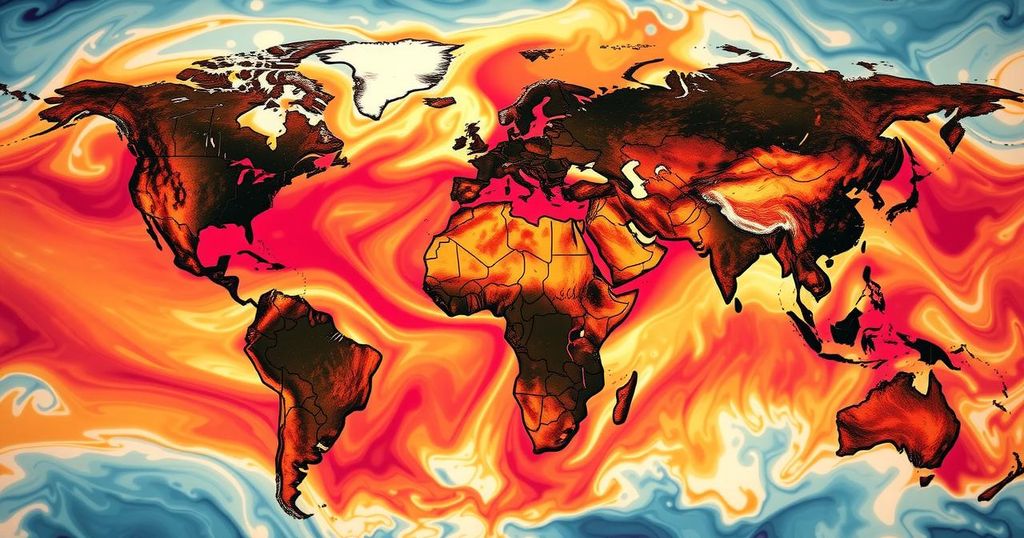2024 Declared Warmest Year on Record Amid Climate Concerns

2024 has officially been declared the warmest year on record, with global temperatures exceeding 2.32 degrees Fahrenheit above the 20th-century average. Throughout the year, Antarctic sea ice coverage hit its second-lowest extent, and other regions experienced their warmest years recorded. Additionally, ocean heat content reached unprecedented levels, signaling continued climate change impacts.
The year 2024 has been officially recorded as the warmest year globally by scientists from the National Oceanic and Atmospheric Administration’s (NOAA) National Centers for Environmental Information (NCEI). Not only did temperatures soar, but Antarctic sea ice coverage also plummeted to its second-lowest extent on record. The average land and ocean surface temperatures significantly surpassed averages from the previous century, highlighting an alarming trend in global climate change.
Specifically, Earth’s average temperature in 2024 reached an unprecedented 2.32 degrees Fahrenheit (1.29 degrees Celsius) above the 20th century average. This marked a notable increase of 0.18 degrees Fahrenheit (0.10 degrees Celsius) compared to the previous record-holder, 2023. Regions across Africa, Europe, North America, Oceania, and South America reported their warmest years on record, while Asia and the Arctic experienced their second-warmest years since comprehensive record keeping began.
Various other scientific establishments, including NASA and the Copernicus Climate Change Service, corroborated NOAA’s findings, confirming that 2024 stands as the warmest year in recorded history. Furthermore, Antarctic sea ice extents averaged 4.00 million square miles, reaching a maximum of 6.59 million square miles, both figures representing the second lowest on record.
As climate change continues to pose a serious threat to the planet, numerous studies and analyses conducted by reputable scientific organizations have highlighted the alarming rise in global temperatures over recent years. The significance of Antarctic sea ice and ocean heat content serves as critical indicators of climate health. Data shows that the climatic patterns observed in 2024 follow a broader trend of increasing temperature and changing weather patterns that scientists have linked to human-induced climate change or global warming. Monitoring such trends is vital to understanding the overall impacts of climate change on ecosystems and weather systems worldwide. The scientific community’s ongoing research into annual climate reports, including those from NOAA, is essential to increase public awareness and inform policy efforts.
In summary, the year 2024 has set a sobering record as the warmest year globally, emphasizing the urgent need for action to address climate change. With significant increases in temperature and alarming decreases in sea ice coverage, the findings from NOAA and corroborating studies highlight the pressing reality of climate change’s impacts. This situation calls for immediate attention from policymakers and communities worldwide to implement solutions that mitigate further environmental degradation. The data presented underscores a critical moment in climate science, where collective awareness and action may still alter the trajectory of future climate conditions.
Original Source: www.noaa.gov







